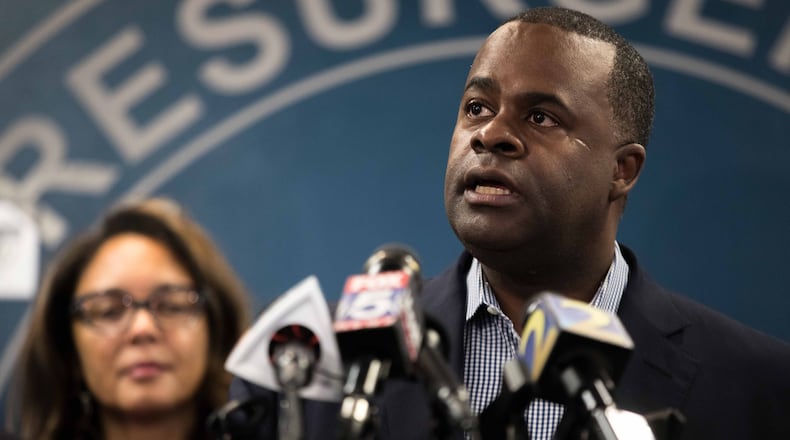News has always traveled fast. Thanks to social media, it's never moved faster.
But speed, as my insurance adjuster will tell you, causes accidents.
It's true behind the wheel and, I'm sad to report, a keyboard. With everyone in such a hurry to get the news out right now, it's sometimes not right.
Last week, major news organizations reported Tom Petty's death before he died.
This week, local news organizations reported Atlanta Mayor Kasim Reed vetoed a city ordinance decriminalizing possession of less than an ounce of marijuana.
Only the mayor hadn't.
Reporters saw a tweet on an official Atlanta City Council account saying Reed had vetoed the measure and quickly wrote about it. The erroneous tweet was corrected and, soon thereafter, the news stories were fixed too.
Mayor Reed says the it was a "stunt" by a political opponent.
Maybe.
But there's likely no conspiracy in this scenario. It wasn't "fake news."
As someone who helped run the AJC's first Twitter account, I can confirm honest mistakes happen. However, I'd like to go on the record and say my initial report of a zebra running loose in downtown Atlanta was later confirmed.
Usually, mistakes are not nefarious.
Zoo Atlanta once suggested a missing rattlesnake was still in one of its buildings. Two days later an Atlantan clubbed it to death on his Grant Park porch.
President Trump once tweeted "Covfefe." Twitter historians are still trying to figure that one out.
Sometimes, the "mistake" is the result of troublemakers.
In 2013, hackers took control of the Associated Press Twitter account and wrote about explosions at the White House. The tweet was corrected, but not before the stock market briefly dipped.
More and more often, social media is used to disseminate fake news whose only purpose is to manipulate the gullible.
Russia is accused of not only creating fake news to affect U.S. elections, but also creating fake Twitter and Facebook accounts .
The biggest distributors of misinformation may be people you know best: Friends who share articles from websites one step removed from the satire of "The Onion" and think, or hope, they are true.
I've got a friend who thinks every major news event is a government cover-up and the "mainstream media" is helping hide the truth.
Another posts things he knows aren't true just to "rile people up."
News travels fast. If we let it, fake news travels even faster.
About the Author
Keep Reading
The Latest
Featured



